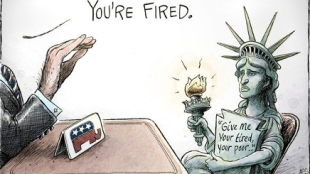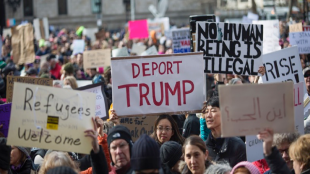Next on The Trump Show: Trump Exploits the Coronavirus to Ban Immigrants
(Source) While the United States and the world glues their attention to the historic protests for racial justice following the killing of George Floyd by Minneapolis police, and the Trump Administration creates ever-growing casualties like exploding unemployment, rising death tolls, and public unrest, the cast of The Trump Show is drumming up a far more subdued spectacle behind the curtain. Using this historic moment as cover, the Administration has continued to move full-steam ahead towards dismantling the U.S. immigration system. On the heels of the Administration’s latest proclamations prohibiting travel for certain foreign nationals that have traveled to or been present in the People’s Republic of China, Iran, the Schengen Area of the European Union, the United Kingdom and Republic of Ireland, and Brazil, President Trump, citing labor market conditions resulting from the COVID-19 pandemic, recently issued two significant Proclamations fundamentally altering the U.S. visa issuance process. In April, Trump signed Proclamation 10014, placing a “temporary” sixty-day ban on the issuance of certain new employment-based permits for lawful permanent residence (also known as green cards). And in June, Trump issued Proclamation 10052, extending the Proclamation 10014 bans until at least December 31, 2020 and issuing a new ban on foreign [read more]




